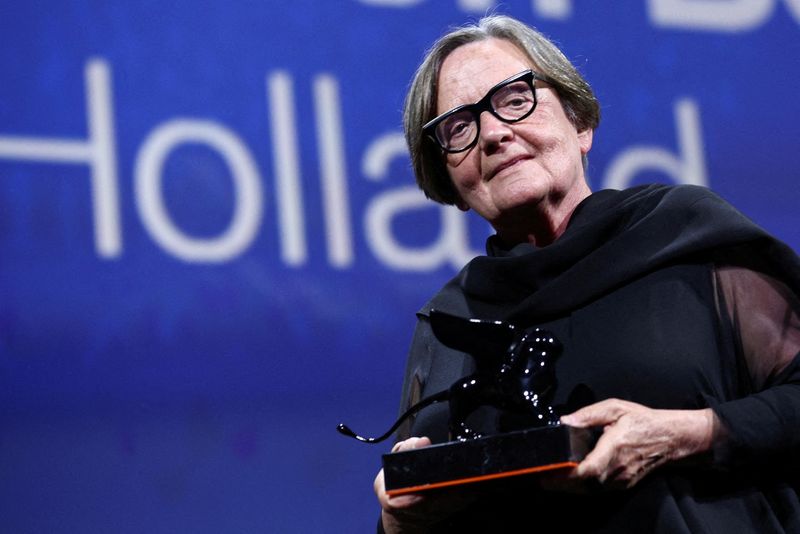WARSAW (Reuters) - Poland's justice minister must not compare film director Agnieszka Holland or her work to authoritarian regimes, a Warsaw court said on Tuesday, after the minister likened Holland's film depicting the Belarus border migrant crisis to Nazi propaganda.
With migration a key issue ahead of Oct. 15 elections, the ruling nationalists Law and Justice (PiS) have pushed Holland's award-winning film 'Green Border' to centre stage in the campaign, condemning its portrayal of the treatment of migrants at the border and accusing Holland of insulting people who were protecting their country.
Justice Minister Zbigniew Ziobro compared the film to Nazi German propaganda, spurring Holland to demand an apology and threatening court action in the absence of one.
In his post on social media network X, Ziobro said: "In the Third Reich, the Germans produced propaganda films showing Poles as bandits and murderers. Today they have Agnieszka Holland for that."
The black-and-white film shows a family from Syria and a woman from Afghanistan thrown backwards and forwards across the border by brutal guards indifferent to their suffering, as activists struggled to try to bring them to safety.
After the court's ruling on Tuesday, Holland's lawyers Sylwia Gregorczyk-Abram and Michal Wawrykiewicz wrote on X: "As Agnieszka Holland's representatives, we would like to inform you that the District Court in Warsaw has issued an order prohibiting Zbigniew Ziobro from speaking about Ms. Holland and her works, comparing them to criminal authoritarian regimes."
The movie drew a furious response from conservatives in Poland even before its release in Polish cinemas on Friday.
Holland hit back at the criticism in an interview with private broadcaster TVN24 on Monday, labelling the government "a disgrace to Poland" and their actions against her work "unprecedented".
Deputy Justice Minister Sebastian Kaleta said Holland and her legal team were in effect blocking Ziobro's right to free speech.

"Minister Ziobro and every citizen has a right to present their views and opinions," he told Reuters. "Ms Holland wants to refuse him this right."
Migrants, largely from North African and the Middle East, started flocking to the border in 2021 after Belarus, a Russian ally, opened travel agencies in the Middle East offering an unofficial route into Europe, a move Brussels said was designed to create a crisis. Poland has refused to let them cross.